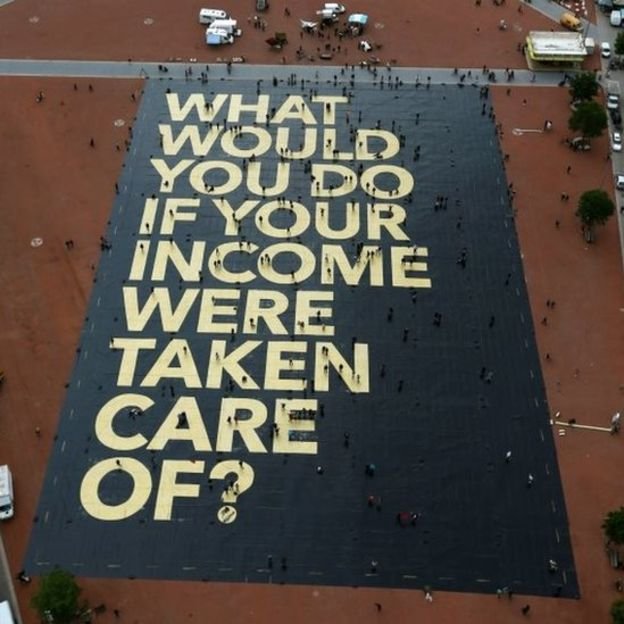Want to end poverty? Give people money.

Give a man a fish and he will eat for a day. Teach a man to fish and he will eat for a lifetime. Give a man a fish every day and he will go find what he really wants to do with his time.
In 2006, Jeffrey Sachs released The End of Poverty. It became a New York Times best seller, and Time named Jeffrey as one of the most influential people in the world. Jeffrey’s formula for ending poverty was simple: more money. He advocated that every country should dedicate 1% of their GDP to foreign aid.
As Penguin Books released a shiny 10 year anniversary edition of The End of Poverty, the foreign aid contribution by country remained largely unchanged . Countries such as Sweden and Luxembourg, which contribute about 1% of their GDP to foreign aid every year, continue to do so. New movers are United Arab Emirates and Turkey. UAE’s contribution climbed from 0% to 1.03% in the past decade. In the same time period, Turkey’s foreign aid increased from 0.05% to 0.95% of GDP. United States' aid has stayed exactly the same: 0.12% of GDP in 2006 and again in 2017. In 2017, US was just ahead of Bulgaria (0.11%) and behind Lithuania (0.13%).
While US GDP has been growing every year since 2006, efforts to end poverty abroad or domestically have been nearly nonexistent.
This piece will explore the poverty problem in the US and how Universal Basic Income (UBI) is our best bet to solve it.
I recently came across a Medium article claiming that 40% of Americans are living in poverty. While verifying the statistics, I saw that the material was copied from the article published a year earlier by Tyler Dorden on a less famous platform.
Tyler claims that 40% of Americans can no longer afford the necessities like rent, transportation, and childcare. He provides a map of income constrained households by country and state. He goes on further to substantiate his claim that "66% of Americans earn less than $20 an hour, or about $40,000 a year, if they are working full-time."
Having made $22/hr and $25/hr working two part time jobs totaling 35 hours a week I can testify that is not nearly enough. This is when organic food was my health insurance and riding my bike my gym membership. No car costs. No kid expenses.
I lost both of those jobs.
As a result, I started exploring other options.
While my parents offered me to move back with them, I could only do so by paying $3,165 as an early lease termination fee. The apartment complex does not allow subletting.
Getting a temporary job is not an option as I would need to work 84.4 hours a week at $12.50 per hour to just to afford rent.
When I looked at charity help which is being offered, I saw little hope.

In 2018, 40 million Americans missed a credit card payment, 5 million defaulted on their student loans, and 2.3 million got evicted.
On average, 80% of Americans are in debt and 73% die with it.
The data is clear. Americans need money.
To give workers the money they need to live, Universal Basic Income projects have sprung up all over the world.

Long running projects reported additional benefits to lower poverty rates, such as smaller number of hospital visits, decreased crime rates, increased standard of living, and education. Among social indicators, people stated they felt a higher sense of self esteem and were more hopeful about the future.
The US joined the movement last year when Stockton, California launched its UBI project. Elon Musk, Richard Branson and Mark Zuckerberg were among the biggest contributors toward a $1 million grant for the town’s citizens. Anyone who is making under $46,033 a year qualifies for a monthly payment of $500, no questions asked. The project is scheduled to conclude in 2020 and that’s when results will be posted.
The biggest obstacle to implementing UBI projects is the cost. In 2016, Y Combinator first announced its intention to give $1,000 a month to 1,000 Oakland residents living below the poverty line. The only information which exists on the project are the announcements of it starting, in 2016, in 2017 and the latest series of articles in mid 2018. The project has not taken off. Inability to raise adequate funds is rumored to be the cause. While mystery surrounds the Oakland project, the Swiss were much more open about why their UBI referendum failed . They cited UBI’s cost as the chief concern considering the high standard of living in the country. As soon as the referendum failed and its critics started to shine in the press, Marc Chesney, a professor at the University of Zurich, voiced a solution: "Given there are some 100,000 billion Swiss francs worth of electronic transactions annually in Switzerland, a tax that takes 0.2% would generate 200 billion; more than enough to fund the basic income proposal — and more than enough to replace all other taxes."
Experiments around the world show us that Universal Basic Income is possible. Failure of the referendum in Switzerland teaches us that only a sustainable model to fund UBI will work. Silicone Valley investors demonstrate that the US wants to join the movement.
I am signing another person onto my lease and moving out. I’m staying with my parents until I can figure out how to generate revenue from a contribution of value to the world rather than my obedience to the system.
What would you do if your income was taken care of?
